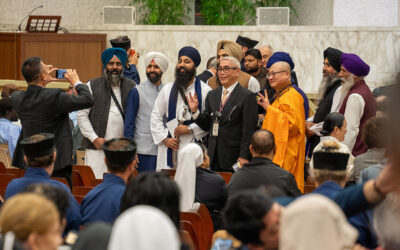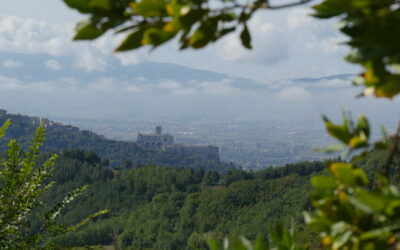Watch the video Margarita Ramirez de Moreno is a volunteer of the Focolare Movement. She is an artisan and entrepreneur, the first to graduate from Santa Maria Aurora of Catamarca School in Argentina. After thirty-five years, the schoolwas recognized and financed by the government of Argentina because of the great educational contribution it has made in the study and recovery of symbols and techniques of Quechua cutlure.  «I was born in Santa Maria, in a region at the foot of the Andes, rich with aboriginal culture, but very poor. I am a descendent of the “calchaquies” (calciachies) aboriginals. I’m married and have seven children. I studied for twelve years at the Aurora School. There, besides reading, writing and weaving, I learned to live the spirituality of unity. In 2003, faced with the widespread unemployment, I started a spinning mill to supply the school’s weaving workshop. It wasn’t easy to convince the women of my land, who have always been discriminated, to take up the work of weaving again. They had to cross rivers and walk many kilometers every day in order to reach the spinning mill. We had no means. Little by little each one offered what she had: a spindle, balls of wool or her ability in this traditional art. There was still the problem of expensive machinery. One day I had to ask for a ride and I confided my concern to the driver.
«I was born in Santa Maria, in a region at the foot of the Andes, rich with aboriginal culture, but very poor. I am a descendent of the “calchaquies” (calciachies) aboriginals. I’m married and have seven children. I studied for twelve years at the Aurora School. There, besides reading, writing and weaving, I learned to live the spirituality of unity. In 2003, faced with the widespread unemployment, I started a spinning mill to supply the school’s weaving workshop. It wasn’t easy to convince the women of my land, who have always been discriminated, to take up the work of weaving again. They had to cross rivers and walk many kilometers every day in order to reach the spinning mill. We had no means. Little by little each one offered what she had: a spindle, balls of wool or her ability in this traditional art. There was still the problem of expensive machinery. One day I had to ask for a ride and I confided my concern to the driver.  He told me that he knew how to build weaving machines. “Can you make them for us?” I asked. He replied: “Yes, you can pay me when you can.” There were other obstacles as well: we lost the place where we were working and our most expert woman quit. “With all that is happening, maybe we should just give up!” said one of the girls, expressing the doubt we all had.
He told me that he knew how to build weaving machines. “Can you make them for us?” I asked. He replied: “Yes, you can pay me when you can.” There were other obstacles as well: we lost the place where we were working and our most expert woman quit. “With all that is happening, maybe we should just give up!” said one of the girls, expressing the doubt we all had.  While we were moving to a new location, we found an image of Our Lady. It seemed very significant to me and I proposed to the others that we make a pact: to work every day with love for one another. Shortly afterwards, we received a donation with which we were able to buy property and equipment. That was the beginning of the “TINKU KAMAYU” studio, which means “Working together.” In the beginning there were eight of us. Today, two years later, there are 18 craftswomen and a growing production. Now I feel that I am part of a large project and involved with many other calchaquies people. We have found our identity again, and with it, hope, cultural growth, the possibility of work for ourselves and for others, and all the wealth of our cultural roots and our people. Now we feel that we are useful, no longer humiliated, but appreciated and capable of expressing our thoughts».
While we were moving to a new location, we found an image of Our Lady. It seemed very significant to me and I proposed to the others that we make a pact: to work every day with love for one another. Shortly afterwards, we received a donation with which we were able to buy property and equipment. That was the beginning of the “TINKU KAMAYU” studio, which means “Working together.” In the beginning there were eight of us. Today, two years later, there are 18 craftswomen and a growing production. Now I feel that I am part of a large project and involved with many other calchaquies people. We have found our identity again, and with it, hope, cultural growth, the possibility of work for ourselves and for others, and all the wealth of our cultural roots and our people. Now we feel that we are useful, no longer humiliated, but appreciated and capable of expressing our thoughts».
Find time to be recollected
Find time to be recollected




0 Comments